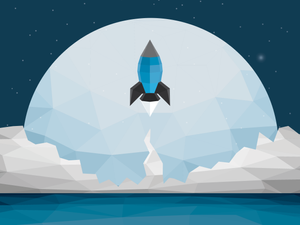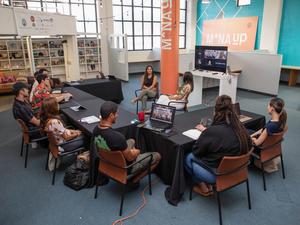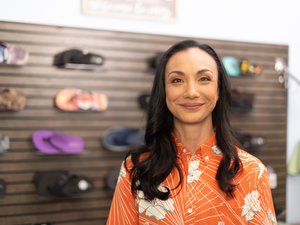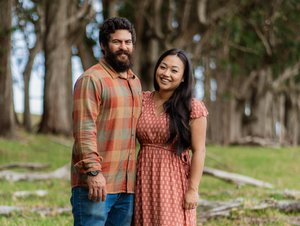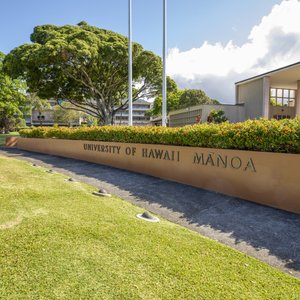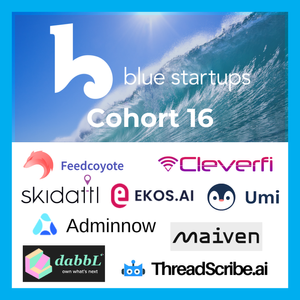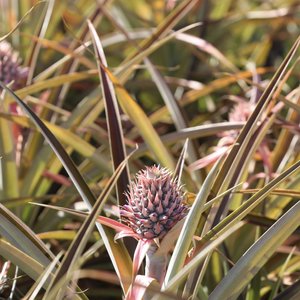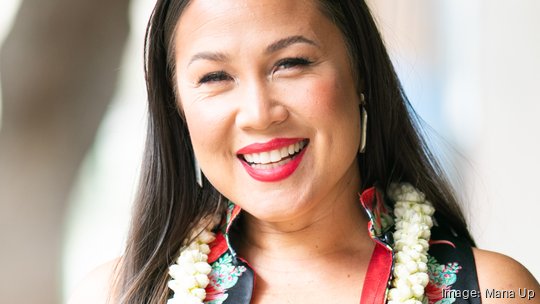
The last few weeks of 2023 were busy ones for Mana Up.
In mid-November, it wrapped Cohort 8, the most recent in its six-month product accelerator program, culminating in the annual Showcase event highlighting the participating businesses. A few days after that, Mana Up headed to Japan to hold a Hawaii-themed pop-up retail shop at Tokyo’s Haneda Airport. The pop-up, called the Aloha Market powered by Mana Up, was hosted in collaboration with the state Department of Business, Economic Development and Tourism, as well as Japan Airport Terminal Co., CPB Foundation, Ulupono Initiative, Hawaii Tourism Authority and Hawaii Tourism Japan. The shop ran for two weeks and featured Mana Up companies along with other popular locally based brands.
In more recent Mana Up news, it announced last week that it is seeking applicants for its next cohort.
Launched in 2017, Mana Up aims to help local companies scale globally while expanding economic opportunities in Hawaii. In addition to its accelerator program, Mana Up manages a venture capital fund that supports Hawaii-based businesses and has a retail arm, House of Mana Up, comprised of brick-and-mortar shops that sell products from alumni companies.
Pacific Business News caught up with co-founder Meli James to chat about Mana Up’s recent activities and what’s ahead. Here's what she had to say, edited for length and clarity.
What were some highlights from Cohort 8? Showcase is always a big highlight. But this particular year, we added two more events to the lineup to make it a multi-day event. We’ve always had the marketplace, and that has been a wonderful aspect of getting the community to see, tangibly, these entrepreneurs and what they are up to. We’ve had the broadcast since [2020]. The two additional events we had were Pow Wow Pitch, which was an open-call for [Indigenous entrepreneurs] that wanted to pitch [their business idea]. And then we had our Artists To Watch concert. We normally just film it in the studio, but [this year] we thought, why don’t we have an actual concert and be able to have everyone get to witness it. We did that at the Convention Center and had a huge audience. They were all young musicians and the energy was just super awesome.
We had over 1,800 attendees for the in-person [Showcase] and we did over $200,000 in sales.
It was also really neat being able to activate different kinds of connections to make a real impact. For example, Foodland is a partner of ours, and Foodland connected with [Cohort 8 business] UBAE and was able to heavily increase their presence in Foodland. Foodland also was the first [place] where you could get Hawaiian Soda Co. on the market. It was also neat to see a lot of companies increasing their manufacturing and ramping up to be able to scale at the volumes that are coming. Maui Chili Chili Oil began to outgrow their shared kitchen space and they ended up getting into a bigger facility that could then massively increase production.
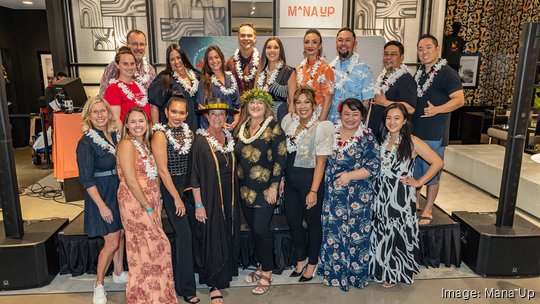
Give me a recap of the pop-up event at Haneda Airport. How did it go? Haneda was a huge success. When we say we want to help companies scale globally, it’s about opening new markets, opening new opportunities, and making it something easier that can be done, because it’s kind of a daunting task — if you want to get into Japan, there are regulatory issues, distribution, and, of course, all the different challenges when you are dealing with a different country.
In terms of some of the numbers, we had 28 companies participate in the pop-up. That was really cool to get legacy companies like Diamond Bakery, Hawaiian Host, Honolulu Cookie and then new companies like Ko Hana Rum, Manoa Chocolate, Noho Home. Fourteen of the companies were Mana Up companies, and we actually got three new companies into Japan that had not been cleared for Japan before — that was Noho Home, Ko Hana Rum and Maui Kuia Estate Chocolate.
In terms of sales, we actually did about six-and-a-half times the amount of sales that had been projected, which is pretty incredible.
How do you think the pop-up impacted the businesses that participated? It’s absolutely impacted the businesses. One, by giving them confidence that they can get into [a retail location of this level]. It’s very similar to what we do at House of Mana Up, where it’s this beautiful store that is next to Hermes and Tiffany on Kalakaua Avenue. It’s really elevating this confidence of, “we make beautiful things here, high-quality things that should absolutely be in some of the best stores in the world.” I think it gave confidence to the entrepreneurs that their stuff could do well [in a different market]. It is creating a smoother pathway to get more companies to jump over to Japan, test the product, see if it does well, and then being able to have that as a launching point to do a lot more in the country.
Do you have any plans to do another pop-up, or similar projects in the future? We’re always looking to push the needle. That is kind of the essence of Mana Up — continuing to forge new paths and think about what those next-level challenges are for the companies. We’ve got this great, robust accelerator where we bring in 10 to 12 companies every year. We are at 85 companies now; next year, we will be at 95 or 96. We are always thinking about what is the next thing that is going to help these companies.
When they graduate from Mana Up, it’s not like, “alright, you did your six months, good luck.” In the last couple of years, we have really built out our alumni program. We have something called our Wayfinder series, which is for companies that are over $1 million in revenue and it starts to target later-stage challenges. Some of our companies have graduated five years ago and now they are at $1 million, $2 million, $5 million in revenue, which is awesome from an economic development standpoint, jobs standpoint. But the challenges they have now are totally different. For example, as [companies] get bigger, a challenge could be around culture and hiring. When they first started, it was probably them and maybe a co-founder and a family member, and now they are hiring 10, 15 staff people. So there are a lot of things around that that we are starting to target. We are always trying to think about new ways that we can be supporting the companies — whether that be pop-ups in other places, or more programming, or more partnerships.
What are Mana Up’s biggest goals for 2024? We’re now in our seventh year — we will be doing Cohort 9, and making Showcase even better.
We’re opening more stores. We recently opened a House of Mana Up in Koloa Village on Kauai, and then we are opening another store, but I can’t say where.
We’re just really excited for [this] year. Lots of things are continuing to come into place. When we started Mana Up, we knew that we were onto something and we knew that there were some great product entrepreneurs here, but we are still surprised and delighted by the fact that our community has gotten behind local [entrepreneurs]. … There is a lot happening this year from an expansion standpoint — we’re really ramping up on the infrastructure side and continuing to build more core foundations that can really get the companies to take off even more so. There’s more to come.
